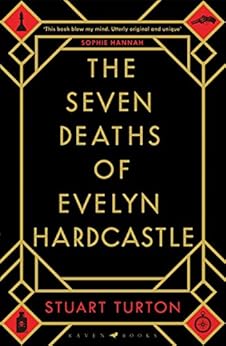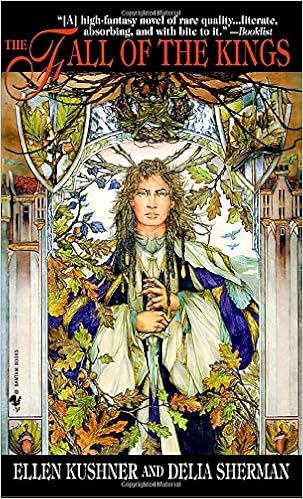I'm reminded of Daniel's pleas yesterday, his delicate way of speaking, as though I might fracture if pressed too hard. He thought I was mad, as this maid does now. Given what's happening to me, what I think is happening to me, I can't be certain they're wrong. [loc. 1563]A country-house murder with a time-loop twist. Our narrator wakes in a forest, with no memory of his own name: no memory of anything except the name Anna. He hears a woman's scream, then is given a silver compass and told 'East' by a mysterious figure whose face he never sees. Following directions, he stumbles up to the front door of Blackheath, where a house party is taking place. Soon, a masked figure appears, and informs him that a murder will occur late in the evening -- a murder that won't look like a murder. (The title, of course, refers to the victim.) Our narrator is there to solve it -- and he has eight chances, living the same day eight times as eight different guests. If he succeeds, he will have a tomorrow. If he fails, says the masked figure, the loop will reset, and he'll live through this day another eight times.
He's not the only person investigating the crime. He has rivals, each aiming to be the one to solve the murder and win their freedom. He may also have an ally -- though he's not always clear as to which of the other characters that might be. And, of course, the masked figure's information may be inaccurate. Can our narrator retain enough sense of himself and his mission to solve the murder? And if he saves the murder victim in the process, has any crime been committed?
This is a cleverly-constructed whodunnit, effective on several levels. There's the standard murder mystery: one of the people in the house kills one of the other people in the house. There's the way that each loop, and the associated host, adds both context and confusion to the narrator's understanding. There's the underlying issue of why he's been set to solve the murder at all. And there is the deliciously subtle way in which his personality is modified -- sometimes in unpleasant ways -- by the personalities of the hosts he inhabits.
There are some interesting philosophical notions here, as well as the convolutions of what turns out to be a very twisty murder-mystery. The Seven Deaths of Evelyn Hardcastle is packed with detail, and eminently readable (though I could have done with fewer run-on sentences). Interesting, unusual, recommended.



